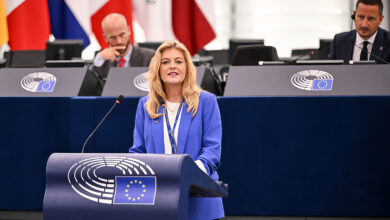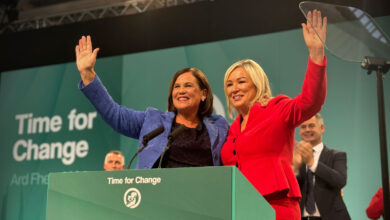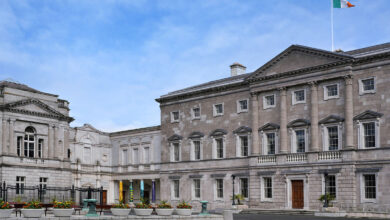Meet The Media
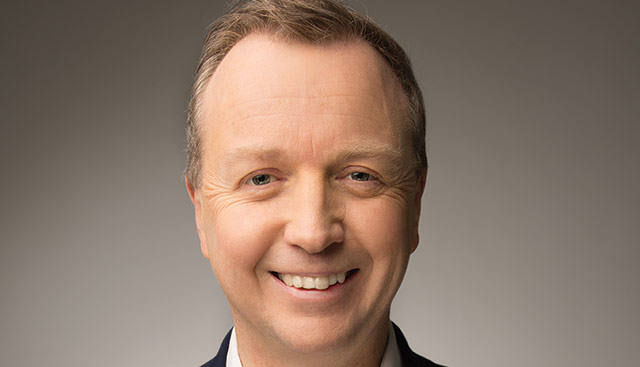
Matt Cooper journalist, author and presenter of The Last Word on Today FM discusses his career highlights and the changing nature of journalism.
Was journalism always your preferred career?
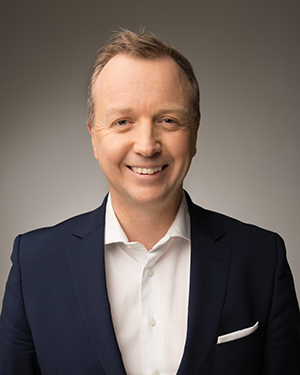 Truthfully, yes. I was an avid reader of newspapers since I was in primary school and used to listen to This Week on Radio 1 at lunchtime with my parents and watch the tv news and current affairs programmes too. It may have been a consequence of being the only child of older than usual parents but I was always interested in what was going on and wanted to be part of it. I got side-tracked a little when it came to picking a career during my leaving certificate year and I opted for a commerce degree at UCC. However, towards the end of my time there I decided that I most definitely did not want to go into accountancy or related discipline and moved to what was then NIHE Dublin to do a journalism post-graduate diploma. The irony was that the commerce degree then opened the door to a career in business journalism which in turn opened doors to the wider media and access to the type of power about which I’ve written and broadcast over the years. I also ended up using what I had learnt in a practical sense during my six years as editor of The Sunday Tribune, which was as much a management job, dealing with finances, marketing and personnel, as it was editing the actual content of the newspaper.
Truthfully, yes. I was an avid reader of newspapers since I was in primary school and used to listen to This Week on Radio 1 at lunchtime with my parents and watch the tv news and current affairs programmes too. It may have been a consequence of being the only child of older than usual parents but I was always interested in what was going on and wanted to be part of it. I got side-tracked a little when it came to picking a career during my leaving certificate year and I opted for a commerce degree at UCC. However, towards the end of my time there I decided that I most definitely did not want to go into accountancy or related discipline and moved to what was then NIHE Dublin to do a journalism post-graduate diploma. The irony was that the commerce degree then opened the door to a career in business journalism which in turn opened doors to the wider media and access to the type of power about which I’ve written and broadcast over the years. I also ended up using what I had learnt in a practical sense during my six years as editor of The Sunday Tribune, which was as much a management job, dealing with finances, marketing and personnel, as it was editing the actual content of the newspaper.
Having worked across TV radio and print, which format do you prefer and why?
I wouldn’t express a preference for any: I love doing them all. They are complementary media, each requiring different skills. I love sitting down to write, assembling a narrative or argument, either for newspapers or books but I also get a great kick out of live broadcasting, the immediacy and discipline of getting it right, and from making television documentaries. I’ve been very fortunate to get the opportunities, although I’m always conscious that everything else revolves around the base job, The Last Word on Today FM, which takes priority.
Has journalism changed since your career began?
Yes and no. Obviously contributing to social media has become important but that is almost a marketing function as much as anything else, even if I greatly enjoy the interaction on Twitter and get plenty of good ideas from other people. But the basics of journalism remain the same: Talk to people. Have an open mind. Find out. Tell the story honestly and accessibly. Those things shouldn’t change.
What stories have been most memorable to work on?
I couldn’t tell you what I did last week on The Last Word, let alone last year. It is always the next story. That said, the trip to North Korea with Dennis Rodman in January 2014 – which led to the documentary “Dennis Rodman’s Big Bang in Pyongyang” – was memorable, albeit for many of the wrong reasons. I jokingly call that my journalist mid-life crisis. I won’t be taking chances like that one again. From a broadcasting point of view, presenting the coverage of the full Rugby World Cup on TV3 in 2015 was a particular highlight.
What career ambitions have you left to fulfil?
Call me paranoid but I’m always offended by the tone of the question, as if there’s not loads to do. Maybe I’m a little sensitive by the fact that I’ll turn 50 this summer, although maybe I should be quiet about that in case I suffer any ageism! There’s six nations rugby on TV3 from 2018 to look forward to and I hope to make some more documentaries for the station too. The station is definitely on an up, now that it has new investment, and I hope to be able to make an even bigger contribution to it. I want to make The Last Word on Today FM even better than it has been and my producer Patrick Haughey and I have some ideas on how we are going to do that. We are always look to freshen things up, to make our programme more compelling to listeners. I want to write more books, perhaps more biographies of significant Irish business figures. I wrote “The Maximalist”, the story of Tony O’Reilly, not just because it is a compelling personal story but because I believe many Irish business figures are as significant to the story of this country as business leaders. I’ve been contributing recently to The Sunday Business Post on ad hoc basis because it is a paper that I really like and I believe plays an important contribution to increasing public awareness of what goes on in this country. I also enjoy writing in a slightly different style for the Irish Daily Mail, which has been a new different challenge since I started with it.
How do you relax outside of work?
Loads of ways. I spend as much time as I can with the family, especially at weekends, probably more than they want! I exercise a lot to clear the head, doing an hour every workday. I go to a personal trainer, Paul Byrne at BodyByrne, for weight training sessions twice a week and then swim the other days. Now that the weather has cleared up I’ll cycle for a few hours every Saturday or Sunday morning during the summer. I also run a little bit – the occasional five mile or ten km race. I love television and going to the cinema and read when I can. I also get out each weekend with friends for dinner but I rarely, if ever, drink alcohol, which helps greatly. And I like to sleep, something that is every bit as important to physical and mental well-being as exercise and diet. Nothing is as relaxing as sleep.

